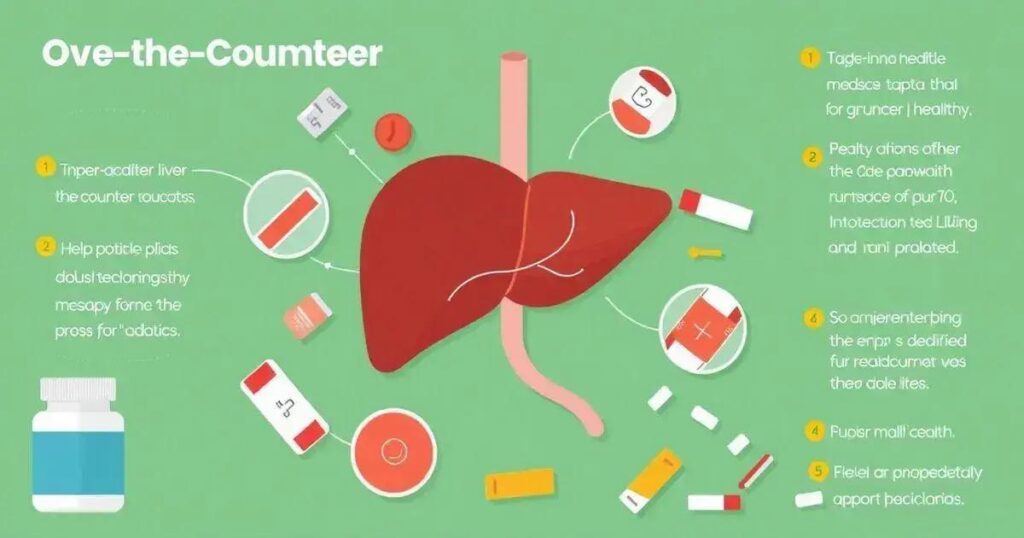To protect your liver from over-the-counter medications, use them wisely by following recommended dosages, avoid mixing medications, and consult healthcare professionals regularly. Recognize signs of liver damage like jaundice and abdominal pain, and make lifestyle changes such as eating a balanced diet and exercising to support liver health.
In today’s fast-paced world, many individuals rely on over-the-counter (OTC) medications for common ailments. However, improper use can harm your liver. Understanding how to protect your liver from over-the-counter medications is crucial for maintaining long-term health. As we delve into this topic, we will uncover essential information on liver health, common signs of damage, and practical tips to safeguard this vital organ.
Understanding OTC Medications and Liver Health
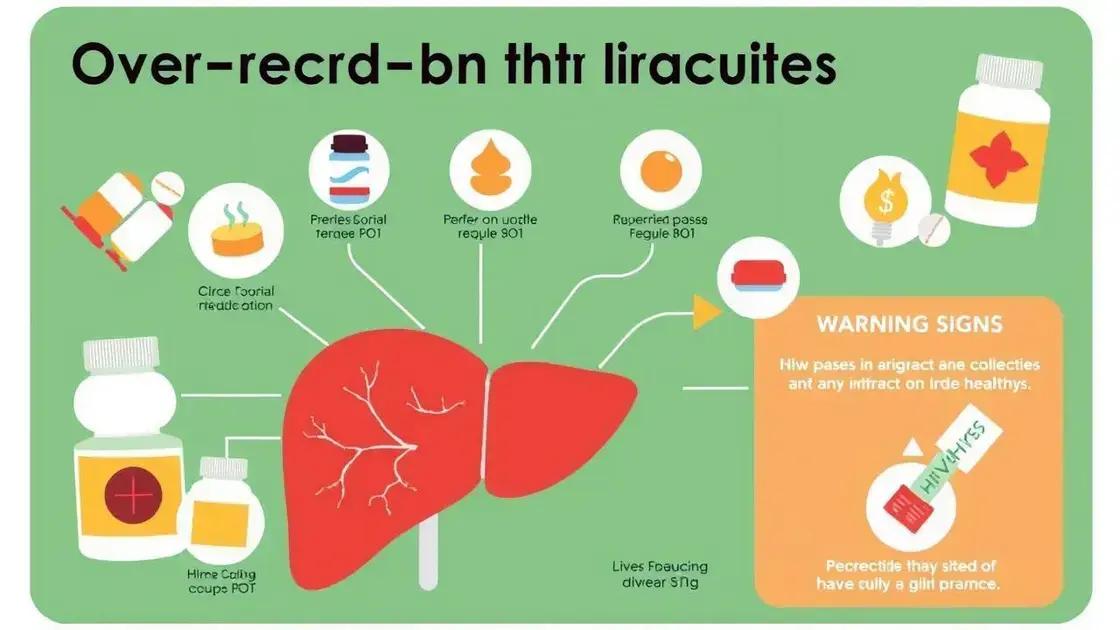
Over-the-counter (OTC) medications are medicines that you can buy without a prescription. While they are convenient for treating common issues like headaches, colds, and allergies, they can affect liver health if not used carefully. Understanding how these medications interact with the liver is crucial for maintaining overall health.
Common OTC Medications
Some typical OTC medications include pain relievers like acetaminophen and ibuprofen, cold and flu medications, and antacids. While they can relieve symptoms, each has potential effects on the liver. For example, taking too much acetaminophen can lead to serious liver damage.
How OTC Medications Affect the Liver
The liver processes medications to help the body eliminate them. This organ can become stressed if overwhelmed with drugs. Excessive or prolonged use of OTC medications can lead to inflammation, fatty liver, or even liver failure.
Factors That Influence Liver Health
Several factors can influence how OTC medications affect your liver. These include age, underlying health conditions, and alcohol consumption. Older adults may have diminished liver function, making them more susceptible to damage. Additionally, chronic conditions like diabetes can complicate how the liver processes medications.
Monitoring Usage
To protect your liver, monitor how often you take OTC medications. Always read labels and follow the recommended dosages. If you find yourself needing to take an OTC medication frequently or for an extended period, consult with a healthcare professional.
Signs of Liver Damage from Medications
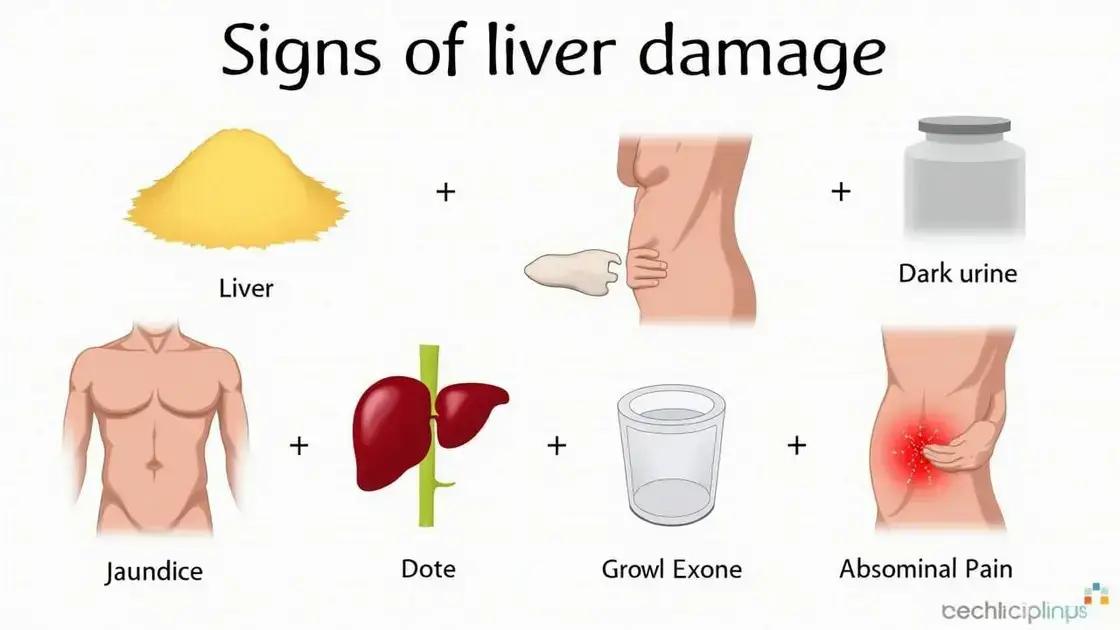
Recognizing the signs of liver damage from medications is vital for early intervention. Some symptoms may be subtle, while others can be quite severe. It’s essential to stay vigilant, especially if you frequently use over-the-counter (OTC) medications.
Common Symptoms
Common signs of liver damage include:
- Jaundice: A yellowing of the skin and eyes due to bilirubin buildup.
- Abdominal Pain: Discomfort or soreness in the upper right side of the abdomen.
- Fatigue: Severe tiredness, even with adequate sleep.
- Loss of Appetite: A noticeable decrease in hunger or interest in eating.
Less Common Symptoms
Some symptoms may be less visible but still indicate liver issues:
- Dark Urine: Urine that appears brownish or tea-colored.
- Pale Stools: Stools that are light or clay-colored.
- Itchy Skin: Persistent itching without an obvious cause.
- Swollen Abdomen: Accumulation of fluid leading to a bloated feeling.
When to Seek Medical Help
If you experience any of these symptoms while taking OTC medications, seek medical advice promptly. Early detection and treatment are crucial to prevent further liver damage.
Regular Monitoring
For those regularly using OTC medications, it is wise to monitor liver function through routine medical check-ups. Testing can help identify potential issues before they become severe.
Tips to Safeguard Your Liver
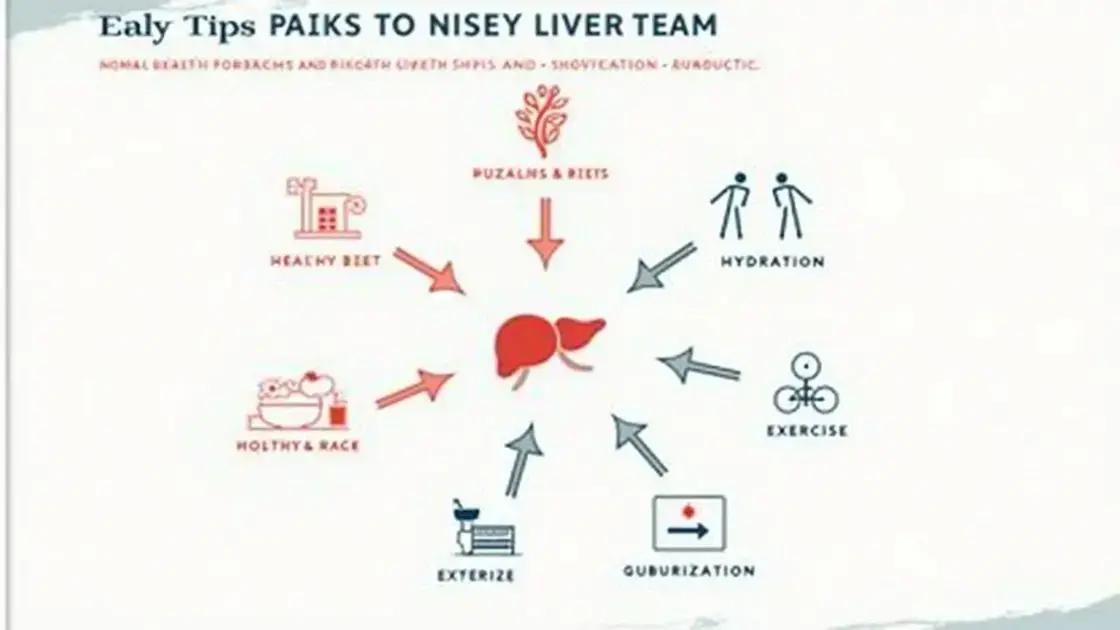
Taking steps to protect your liver is essential, especially when using over-the-counter (OTC) medications. Here are some effective tips to safeguard your liver health:
1. Use Medications Wisely
Always follow the recommended dosages on the label of any OTC medication. Do not exceed the recommended amount. If you find yourself often taking a particular medication, consider consulting with a healthcare professional.
2. Avoid Mixing Medications
Combining OTC medications can increase the risk of liver damage. Always check with a pharmacist or doctor before taking multiple medications, especially those that contain acetaminophen.
3. Limit Alcohol Consumption
Alcohol and certain OTC medications can both put stress on the liver. To protect your liver, limit alcohol intake or avoid it altogether while taking medications.
4. Maintain a Healthy Diet
Eating a balanced diet rich in fruits, vegetables, and whole grains can help support liver function. Foods like leafy greens, nuts, and fatty fish are especially beneficial for liver health.
5. Stay Hydrated
Drinking plenty of water helps keep your liver functioning well. Aim for at least 8 glasses of water daily to help flush out toxins.
6. Get Regular Exercise
Regular physical activity helps maintain a healthy weight, which is important for liver health. Aim for at least 30 minutes of moderate exercise most days of the week.
7. Schedule Routine Check-ups
Regular visits to your healthcare provider can help monitor liver health. Blood tests can assess liver function, allowing for early intervention if needed.
Consulting Healthcare Professionals
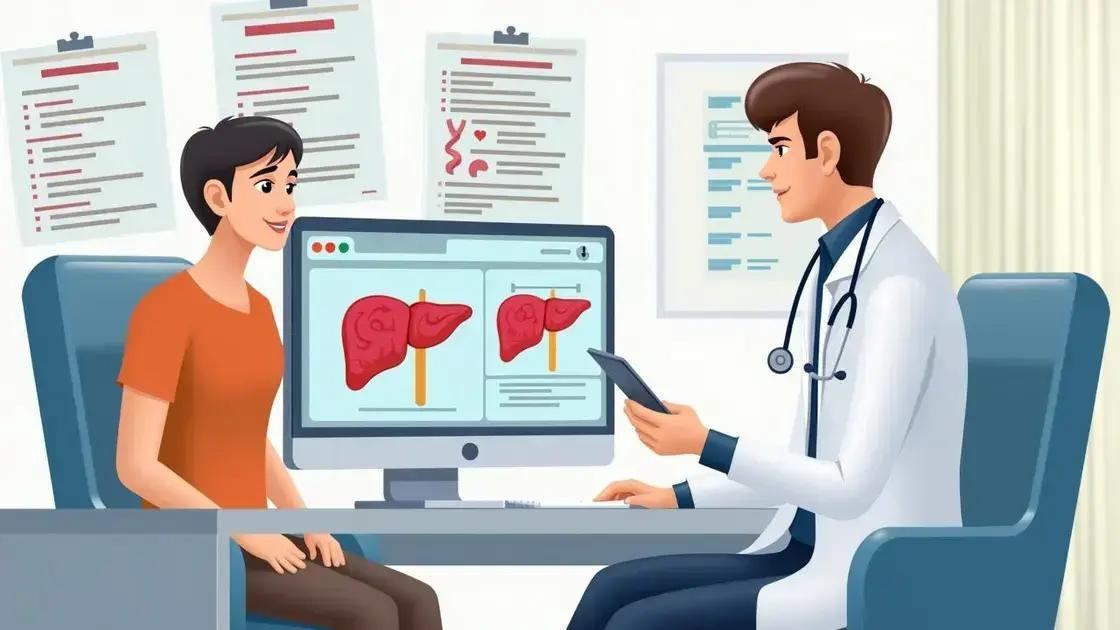
Consulting healthcare professionals is a vital step in protecting your liver, especially when using over-the-counter (OTC) medications. Here are some key reasons for involving healthcare providers in your health care:
1. Personalized Advice
Each person is unique, and so is their health condition. A healthcare professional can provide personalized guidance based on your medical history, current medications, and lifestyle factors.
2. Medication Review
Regularly seeing a doctor allows for a complete medication review. This helps ensure that all your medications, including OTC products, are safe to use together without increasing the risk of liver damage.
3. Monitoring Liver Function
If you are taking medications known to affect the liver, your doctor may recommend routine blood tests to monitor liver function. Early detection of any issues is crucial for effective treatment.
4. Health Education
Healthcare providers can educate you about the signs of liver damage and the importance of safe medication practices. Understanding these aspects better prepares you to take care of your liver.
5. Referral to Specialists
If liver health is a concern, your primary care physician may refer you to a specialist, such as a hepatologist. These specialists focus on liver diseases and can offer advanced treatments or lifestyle recommendations.
6. Support for Health Conditions
If you have pre-existing health conditions, consulting your healthcare provider is essential. Conditions like diabetes or obesity can affect liver health and how medications work in your body.
7. Creating a Medication Plan
A healthcare professional can help create a medication management plan tailored to your needs, ensuring you use medications safely and effectively.
In Summary: Protecting Your Liver from OTC Medications
Understanding how to protect your liver from over-the-counter medications is crucial for maintaining your health. By using medications wisely, being aware of the signs of liver damage, and taking proactive steps to safeguard your liver, you can reduce the risks associated with OTC medications.
Regularly consulting with healthcare professionals ensures that you receive personalized advice and monitoring to keep your liver healthy. Remember, early detection and intervention can make a significant difference in your overall well-being.
By following these guidelines, you can effectively manage your health and enjoy a better quality of life.
FAQ – Frequently Asked Questions about Protecting Your Liver from OTC Medications
What can I do to protect my liver when taking OTC medications?
Follow the recommended dosages, avoid mixing medications, limit alcohol consumption, and maintain a healthy diet.
How can I recognize signs of liver damage?
Common signs include jaundice, abdominal pain, fatigue, dark urine, and pale stools. If you notice these symptoms, consult a healthcare professional.
Is it safe to use multiple OTC medications at once?
It’s important to consult a healthcare provider or pharmacist before combining OTC medications to avoid potential interactions that could harm the liver.
How often should I consult a healthcare professional?
Regular check-ups are recommended, especially if you frequently use OTC medications or have existing health conditions that may impact liver health.
What lifestyle changes can help improve liver health?
Adopting a balanced diet, staying hydrated, exercising regularly, and avoiding excessive alcohol consumption can all contribute to better liver health.
When should I seek medical help regarding liver health?
If you experience symptoms of liver damage or have concerns about your medication use, it’s essential to seek medical help immediately.

